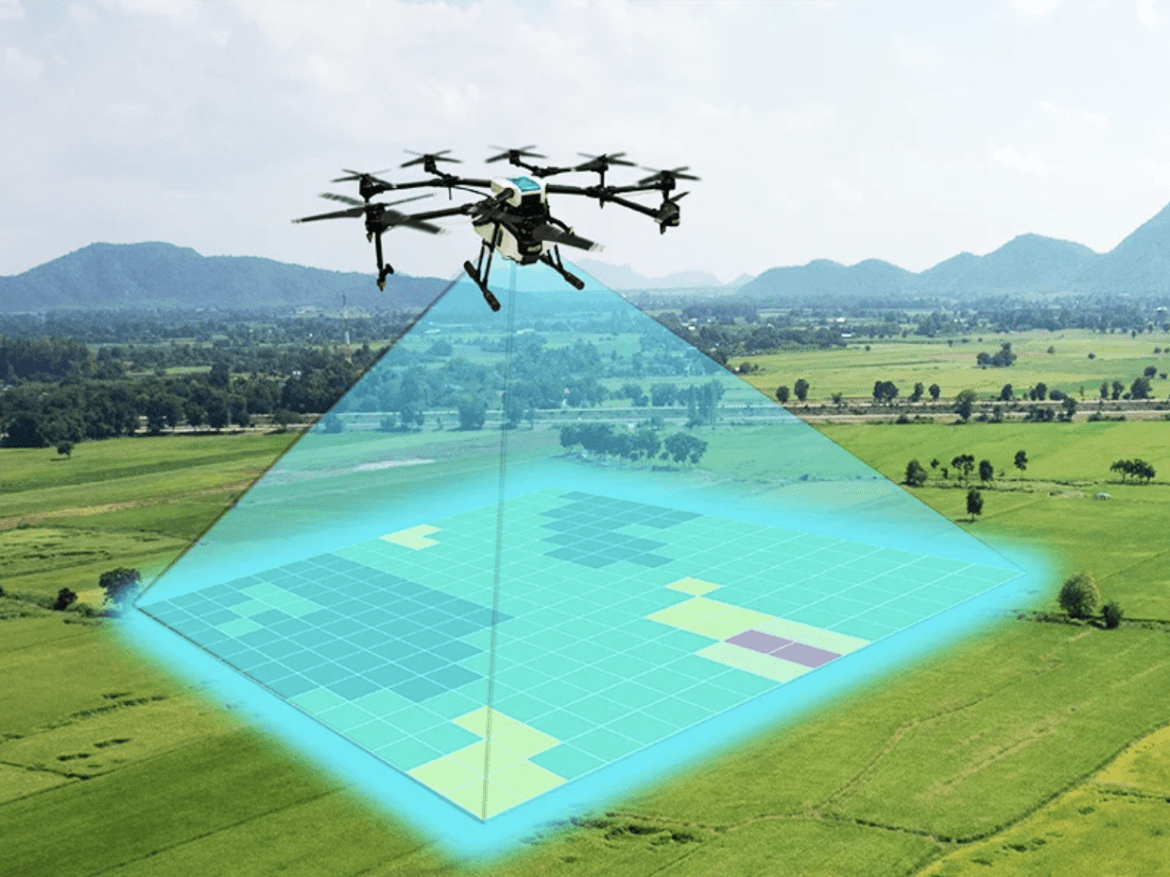Artificial Intelligence (AI) refers to the simulation of human intelligence in machines that are programmed to think and learn like humans. It encompasses a range of techniques and technologies that enable computers and systems to perform tasks that typically require human intelligence, such as visual perception, speech recognition, decision-making, problem-solving, and language translation.
Artificial Intelligence in Agriculture
Artificial Intelligence (AI) is revolutionizing the agricultural sector by improving efficiency, productivity, and sustainability in food production. With its ability to analyze vast amounts of data and make intelligent decisions, AI is transforming traditional farming practices.
This article explores how AI is enhancing various aspects of agriculture, from crop management to resource optimization, and its potential to address the challenges of feeding a growing global population while minimizing environmental impact.
- Precision Farming: AI enables precision farming techniques by integrating data from sensors, drones, and satellite imagery. This data-driven approach allows farmers to optimize water and fertilizer usage, tailor pest control measures, and monitor crop health in real-time. By precisely targeting resources, farmers can minimize waste and increase yields.
- Smart Crop Monitoring: AI-powered systems leverage computer vision and machine learning to monitor crop growth, detect diseases, and identify nutrient deficiencies. Through image analysis and pattern recognition, farmers can quickly identify issues and take preventive measures. This proactive approach minimizes crop losses and reduces the reliance on pesticides.
- Predictive Analytics: AI algorithms analyze historical and real-time data to make predictions about weather patterns, market demand, and crop yields. This information helps farmers make informed decisions regarding planting schedules, crop selection, and resource allocation. Predictive analytics also aids in managing supply chains efficiently.
- Automated Machinery and Robotics: AI-driven robots and automated machinery are being developed for various farming tasks. These technologies can perform activities such as planting, harvesting, and sorting with precision and consistency. By reducing labor requirements and increasing operational efficiency, AI-powered robotics enhance productivity and minimize costs.
- Soil and Resource Management: AI systems analyze soil data, weather patterns, and historical records to optimize irrigation schedules and nutrient application. By providing accurate and timely recommendations, AI helps farmers reduce water usage, minimize fertilizer runoff, and improve soil health, promoting sustainable farming practices.
- Decision Support Systems: AI-based decision support systems provide real-time advice to farmers, considering various factors like crop conditions, market prices, and regulations. These systems assist in making optimal decisions regarding planting strategies, pest control, and resource allocation, maximizing profitability and sustainability.
- Farming-as-a-Service (FaaS): AI-powered platforms are emerging that offer farming-as-a-service, providing farmers access to advanced technologies, data analytics, and expert insights. This democratizes the benefits of AI in agriculture, empowering farmers of all scales to improve their practices and increase their yields.
Benefits of AI in Agriculture
AI in agriculture brings numerous benefits to farmers, the environment, and the overall food production process. Here are some key advantages of AI in agriculture:
- Increased Efficiency: AI technologies, such as precision farming and automation, optimize resource utilization, reduce waste, and enhance operational efficiency. Farmers can make data-driven decisions regarding irrigation, fertilization, and pest control, resulting in higher yields and reduced costs.
- Improved Crop Management: AI-powered systems monitor crops using sensors, drones, and satellite imagery, providing real-time data on plant health, growth, and disease detection. This enables early intervention, minimizes crop loss, and enhances overall crop management practices.
- Enhanced Resource Optimization: AI analyzes data from multiple sources, including weather patterns, soil conditions, and historical records, to optimize resource usage. This includes water management, fertilizer application, and energy consumption, leading to more sustainable and environmentally friendly practices.
- Precise Decision-Making: AI algorithms analyze complex data sets and provide accurate insights for decision-making. Farmers can benefit from predictive analytics, market trends, and real-time information to make informed choices about planting, harvesting, and marketing strategies.
- Labor Savings and Automation: AI-driven robotics and automated machinery perform labor-intensive tasks such as planting, harvesting, and sorting. This reduces the need for manual labor, increases productivity, and allows farmers to focus on higher-value activities.
- Enhanced Pest and Disease Management: AI systems can detect early signs of pests, diseases, and nutrient deficiencies through image analysis and machine learning algorithms. Timely identification enables prompt action, preventing the spread of diseases and minimizing crop damage.
- Sustainable Practices: AI helps optimize resource usage, reduce chemical inputs, and minimize environmental impact. By implementing AI-driven practices, farmers can adopt more sustainable agricultural methods, conserve natural resources, and promote ecological balance.
The benefits of AI in agriculture extend beyond individual farms, positively impacting the entire food production system, sustainability efforts, and the well-being of farmers and consumers alike.
If anyone wants to develop their own AI app for their business then connect with the top app development company. AI app development requires a skilled team of developers, data scientists, and domain experts to deliver successful and impactful AI-powered applications.
Conclusion:
AI is transforming agriculture by improving efficiency, sustainability, and productivity in food production. From precision farming and smart crop monitoring to predictive analytics and automation, AI technologies are enabling farmers to make data-driven decisions and optimize resource utilization. By embracing AI in agriculture, we can meet the growing global demand for food while minimizing environmental impact and ensuring a sustainable future for agriculture.




